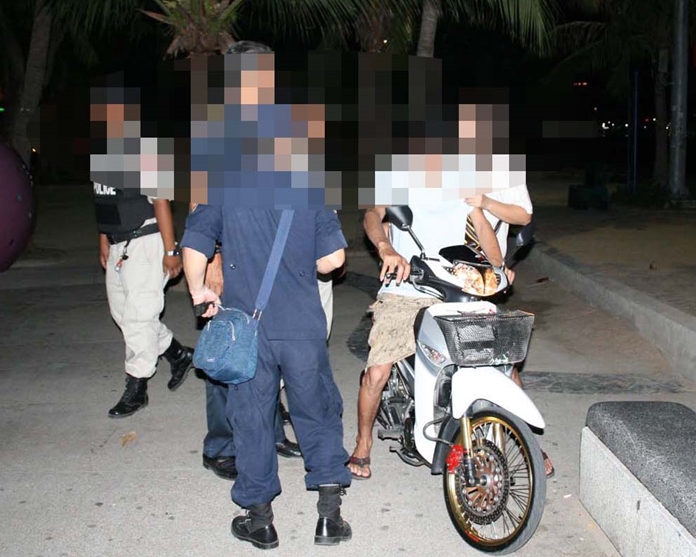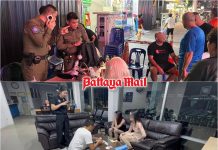
Thailand remains under a national curfew until at least the end of this month.Yet severalthousand Thais and foreigners have been arrested, mainly for partying, during the forbidden hours of 22.00 – 04.00.A survey of the publicized cases suggests there are variable reasons why people are taking the risk of fines, jail time and even deportation.
The first is claimed ignorance.Although national, local and social media continually tub-thump the regulations, not everyone takes much notice of announcements.Several foreign tourists who were arrested at a hotel pool party in Pattaya offered the excuse that they did not think it was illegal if the fun was occurring on private premises.They then argued that the hotel manager had given them wrong information.
An expat in Chiang Mai was hauled after he was caught driving his car in the middle of the night with a cage on the back seat.He explained that his cat was very sick and he was attempting to find a veterinary clinic which was open at three o’clock in the morning.He went on to say that he knew from the internet that medical emergencies were exempt from the curfew regulations.
Another common reason for risking the wrath of the authorities is selfishness.When an illegal drinks party in Phuket was raided, several boisterous attenders under 30 pointed out that the Coronavirus pandemic mostly threatened the lives of the old and the sick.The accused were young and healthy, so the worst that could happen to them was a dose of flu.In other words, they were unconcerned becauseno health disaster was actually unfolding in front of their eyes.Tragedy is something that happens to other people.
A third explanation is that “it won’t happen to me”, meaning that some guys and gals think the chances of being caught are minimal.A local Pattaya man was stopped by a police patrol riding his motorbike soon after midnight.He explained that he had noticed the traffic was quiet but had no idea it was so late and that, in any case, he was simply going home to sleep off a hangover.
Foreigners often underestimate the diligence of the Thai authorities in enforcing curfews of which the latter have very long experience, usually in the months following a military coup.Of course, this particularcurfew is about public safety and not about discouraging political opposition.“I thought it was safe to go to a shebeen (illegal drinking den),” said one Brit caught drinking alcohol, “because Pattaya is a big city and not many police are on duty in the middle of the night.”
The penalties doled out to curfew breakers depend initially on senior officers in the local police station. Polite criminals may be treated more humanely than those who are rude or violent.A few lucky ones may be let off with a warning and told to sing the national anthem in full voice.An overnight stay in the police holding cells, maybe longer at the weekend, and a fine of 50,000 baht, usually but not always paid to the court, is probably the most common penalty.At least four farang in Bangkok are known to have been sentenced to community service in lieu of a prison sentence.
There was been much speculation about foreigners being deported after being found guilty of this particular offence and black-listed for return.But Thai deportation procedures can be complex issues, often involving court procedures and a large discretion which is vested in the immigration police who were likely not directly involved in arrests relating to curfews.
As one police officer explained, “Most foreign tourists who have been apprehended for breaking the curfew are pretty depressed by the experience and will want to leave the country as quickly as possible anyway.They realize they are not welcome.But we have to look separately at those who have families here or have work permits.” He concluded by observing that deportation and blacklisting are trump cards in the armory.
 |
 |
 |





